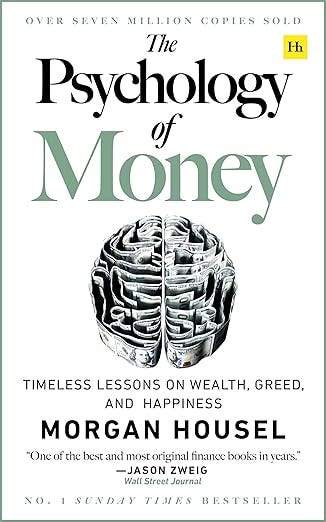Here’s what to expect in this newsletter!
(P.S. If this newsletter is cut off in your email just visit our Substack!)
📰 Interesting financial news: Stay up to date on what’s happening in the economy.
📈 What’s popping in the stock market: The 411 on trending/interesting stock market news.
📝 This week’s main topic: What this newsletter’s title is about!
🥰 Team CGF’s Amazon favs: Affordable yet helpful Amazon finds.
📰 Interesting financial news
Student loan repayment tips amid challenging times for borrowers. (CNBC)
Protecting your 401(k): Essential steps for a stock market downturn. (USA Today)
📈 What’s popping in the stock market
What can stop the stock market bleeding? (Sherwood.News)
Wall Street is worried about apple stock in particular. Should you be too? Ticker Symbol: AAPL)
📝 Main topic: Thinking through your investments in these current times

The stock market has seen many changes over these past few months and even days. In February, the market was doing well, with the S&P 500, a common indicator of market performance, rising to an all-time high.
However, last week, the S&P 500 experienced a 10% drop and the Nasdaq, which focuses on tech stocks, plunged, 2,200 points as U.S. tariffs escalated a global trade war. Times like this have investors questioning whether they should sell or wait until the market returns.
What’s influencing the market dip?
Whenever there is a big shift in society, the government, or other areas of life, it can influence how people spend money. When people feel confident, they spend more, and stocks increase. When there’s uncertainty, people spend less, and stocks tend to fall.
As you are likely already aware, right now, the biggest influence on the public's reactions to the economy are the recent tariffs put into place by President Donald Trump. Many people are questioning if tariffs are a permanent change or if they are negotiating tactics. No one is certain, and this worry has significantly influenced the stock markets globally.
Is what’s happening with the stock market normal?
The stock market rarely stays in one place for long. The S&P 500 has fallen and risen several times in the past. Therefore, what we’re seeing in the stock market while severe, isn’t unheard of but instead, is a part of the volatility of the market.
Still, watching the market move like the tides of the ocean can put you on the fence about selling your shares.

Is now the time to sell?
While, ultimately, the decision of when to sell is up to you and your long-term financial plans, we have some advice for you to consider. You can apply this information if you’re currently investing or considering starting:
1. Create or review your investment strategy
The market is often described as a bear or bull. These animal references indicate how the market is moving. A bear market means the markets are trending down, prices are low. A bull market is when prices are high.
While we’re not exactly in a bear market, some investors question if we are heading in that direction. The Nasdaq recently entered a market correction, meaning it fell 10% from a recent high. A correction becomes a bear market if the drop reaches 20%.
With the market teetering towards a bear market, long-term goals and strategies are best. This is because investing when market prices are on the lower side means that investment might take longer to create a profit.
Therefore, if you’re investing for things like retirement, long-term finance goals, etc., remember not to react based on your emotions and continue sticking it out for the long haul. Here’s why:
The market has historically always recovered from drops. Your portfolio might take a hit, but the chances of regaining after your loss are much higher if you wait things out.
Investing long-term also allows you to take advantage of compounding interest, which is your best friend in investing. This is where you earn interest on the amount of your original investment and the accumulated interest. However, to use compounding interest at its full potential, you need to use the power of time. The longer you invest, the better compounding interest will go into effect.
2. Diversify
Diversifying your portfolio simply means not putting all your eggs in one basket. Putting all your money in one stock or one investment vehicle can leave you vulnerable.
Here are some ways to protect yourself by diversifying:
Invest index funds or ETFs
Index funds and ETFs are collections of stocks, bonds, and other securities. They track or replicate the performance of a specific benchmarks in the market. Instead of investing in individual stocks, these funds allow you to diversify by purchasing a basket of securities. As a result, they can potentially increase your chances of success.
Invest international markets
International diversification is an investment strategy that involves spreading assets across multiple countries. Investing in different economies can reduce risk, as market fluctuations in one region may not impact others in the same way. And so it’s a good ideas to also expand your index fund and ETF investments to include international options as well.
Leverage dollar-cost averaging
Dollar cost averaging, or DCA, involves investing a fixed amount at regular intervals, regardless of market fluctuations. This strategy helps reduce volatility and spreads out risk.
For example, consistently contributing to your 401(k) each month is a form of DCA. Here’s how it works: If you invest $200 every month, that amount goes into your chosen investment fund no matter what the market is doing. Some months, you may buy at a higher price, while other times, you’ll get more shares when prices drop.
The key is consistency. DCA helps you build wealth over time without the stress of market timing.
—
We can all admit that tensions have been running high since the beginning of the year. With so many changes in the government and the economy, it’s normal for our emotions to run rampant. However, staying focused on your goals and seeking the support of financial professionals if you need the guidance can help.
And remember Clever Girl Finance is here to support you along the way. Sign up for our completely free courses on investing to learn more about how investing works.

🥰 Team CGF’s Amazon Favs
If no one has told you, investing is for everyone. Although it can seem complicated and maybe not worth the trouble, investing can be a key way to build long-term wealth.
If you’re looking for a gentle way to learn more and start investing, here are some resources that will help you.
P.S. If you make a purchase we may earn a commission, this helps us grow!
Clever Girl Finance: Learn How Investing Works, Grow Your Money

In Bola Sokunbi’s book Clever Girl Finance: Learn How Investing Works, Grow Your Money, you’ll get a simple explanation of how investing works and how to get started with investing.
What if you make an average salary? Can you still invest? Yes, this book will break down how to get started even if you don’t make six figures a year.
Imagine a future where a restful retirement is a reality, your dream home awaits, and that dream getaway is booked. Stop living paycheck to paycheck and start building the life you deserve. Grow Your Money will help you get started.
The Psychology of Money: Timeless Lessons on Wealth, Greed, and Happiness

At Clever Girl Finance, we're passionate about financial education. We believe that when you know better, you do better. But knowledge alone isn't enough to unlock true financial freedom. The next step is all about behavior.
Real-life money decisions are influenced by personal biases, emotional factors, and unique perspectives. In The Psychology of Money, Housel shares 19 compelling stories that illuminate these complexities, offering practical insights into navigating the world of finance.
Learn what’s holding you back with finances and take control today.
The Simple Path to Wealth: Your Roadmap to Financial Independence and a Rich, Free Life
What would you do with your life if you didn’t have to worry about money? How many hobbies would you try? Which countries would you visit?
The fact of the matter is, while we may wish to avoid thinking about money, it’s a crucial part of living a happy and secure life.
That said, to conquer the "beast" of money and investing, you have to tackle it head-on. Fortunately, The Simple Path to Wealth, JL Collins has broken down the complexities of finance and created a book that will help you get financially ahead.
This book will help you:
Avoid or eliminate debt
Understand how the stock market really works
Put together a solid retirement plan
And much more.
Written by a father who wanted to give financial advice to his daughter, this book will help anyone navigate the big and often intimidating financial world.





